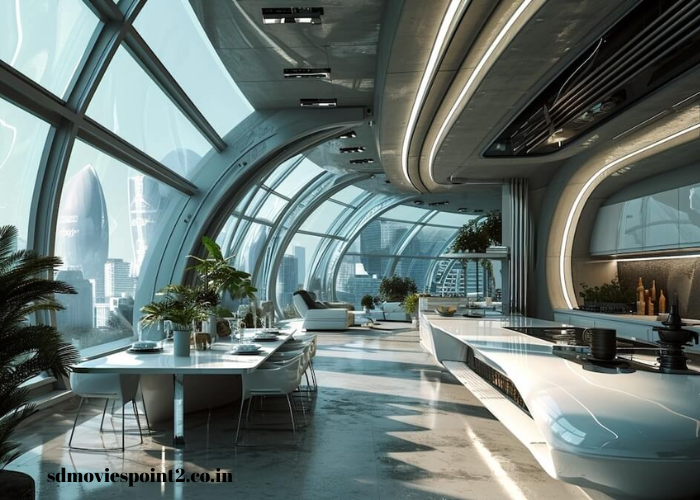In the dynamic world of contemporary living, the pursuit of a harmonious and efficient lifestyle has never been more critical. As our environments and routines evolve, so too does the need for innovative lifestyle solutions that not only address modern challenges but also enhance our overall quality of life. This article explores the forefront of these solutions, delving into transformative ideas and technologies that are shaping the future of living spaces, work environments, and personal well-being.
Embracing Smart Home Technology
At the heart of innovative lifestyle solutions lies the integration of smart home technology. The modern home has evolved into a sophisticated ecosystem where devices and systems communicate seamlessly to enhance convenience, security, and energy efficiency. Smart thermostats, such as those from Nest and Ecobee, adjust temperatures based on occupancy patterns, reducing energy consumption while maintaining optimal comfort. Similarly, smart lighting systems like Philips Hue and LIFX offer customizable lighting schemes that adapt to various activities and times of day, enhancing both functionality and ambiance.
The rise of smart home assistants, such as Amazon Alexa and Google Assistant, has further revolutionized home management. These voice-activated systems control a range of devices, from lighting and climate to entertainment and security systems. They also facilitate the creation of automated routines, allowing homeowners to schedule tasks and manage their environment with minimal effort. This level of integration not only streamlines daily routines but also contributes to a more sustainable and efficient lifestyle.
Sustainable Living Practices
As environmental concerns gain prominence, sustainable living practices have become integral to contemporary lifestyle solutions. The focus has shifted towards reducing our carbon footprint and adopting eco-friendly habits. One notable trend is the rise of green building practices, which emphasize energy-efficient construction materials and techniques. Passive house designs, for example, utilize advanced insulation and airtight construction to minimize energy consumption while maximizing comfort.
Urban farming and vertical gardens are also gaining traction as innovative solutions to food security and environmental sustainability. These practices involve growing food in urban spaces or high-rise buildings, reducing the need for transportation and minimizing the environmental impact of traditional agriculture. Companies like AeroFarms and Plenty are at the forefront of this movement, employing cutting-edge hydroponic and aeroponic systems to produce fresh, nutrient-rich food in urban settings.
Moreover, the use of sustainable materials in interior design and furniture is becoming increasingly popular. Reclaimed wood, bamboo, and recycled materials are being used to create stylish and eco-friendly living spaces. This shift towards sustainability not only contributes to environmental preservation but also promotes a healthier and more conscious lifestyle.
Wellness and Health Innovations
Contemporary living is not just about smart technology and sustainability; it also encompasses the pursuit of wellness and health. Innovations in this realm focus on enhancing physical and mental well-being through technology, design, and lifestyle changes. One such innovation is the proliferation of wellness apps and devices that track various aspects of health, from physical activity and sleep patterns to stress levels and nutrition.
Wearable technology, such as fitness trackers and smartwatches, has become a vital tool for individuals seeking to monitor and improve their health. Devices like the Fitbit Charge and Apple Watch offer real-time data on heart rate, steps taken, and sleep quality, enabling users to make informed decisions about their health and fitness routines.
In addition to wearable technology, the design of living spaces has evolved to prioritize wellness. Biophilic design, which incorporates natural elements into interior environments, has gained recognition for its benefits to mental and emotional well-being. Features such as living walls, natural lighting, and indoor gardens create calming and restorative spaces that enhance overall quality of life.
Work-Life Integration
The traditional boundaries between work and personal life are increasingly blurred, leading to the need for innovative solutions that facilitate work-life integration. Remote work and flexible work arrangements have become more prevalent, driven by advancements in technology and changing attitudes towards work. Home offices are now designed to be both functional and aesthetically pleasing, incorporating ergonomic furniture, advanced technology, and designated workspaces that promote productivity and well-being.
Collaboration tools and platforms, such as Zoom, Microsoft Teams, and Slack, have revolutionized the way we work and communicate. These tools enable seamless collaboration, regardless of geographical location, and support the growing trend of remote and hybrid work models. As the nature of work continues to evolve, innovative solutions in this area will play a crucial role in shaping the future of work-life integration.
Personalization and Customization
In contemporary living, personalization and customization have become key aspects of lifestyle solutions. Advances in technology and design allow individuals to tailor their living environments to their preferences and needs. Smart home systems offer personalized settings for lighting, temperature, and entertainment, while modular furniture and customizable design elements enable individuals to create spaces that reflect their unique style and requirements.
Furthermore, the rise of personalized health and wellness solutions, such as custom nutrition plans and individualized fitness programs, allows individuals to address their specific health goals and preferences. Companies like 23andMe and Nutrigenomix offer genetic testing services that provide insights into dietary needs and health risks, enabling individuals to make more informed decisions about their well-being.
Conclusion
Innovative lifestyle solutions for contemporary living represent a convergence of technology, sustainability, wellness, and personalization. As we navigate the complexities of modern life, these solutions offer transformative approaches to enhancing our living environments, improving our health, and achieving a harmonious work-life balance. By embracing these advancements and incorporating them into our daily routines, we can create a more efficient, sustainable, and fulfilling lifestyle that meets the demands of the 21st century.
As we look to the future, it is clear that the evolution of lifestyle solutions will continue to shape our experiences and environments in profound ways. The integration of smart technology, sustainable practices, wellness innovations, and personalized design will drive the next wave of contemporary living, offering new opportunities for enhancing our quality of life and achieving our personal and professional goals.




